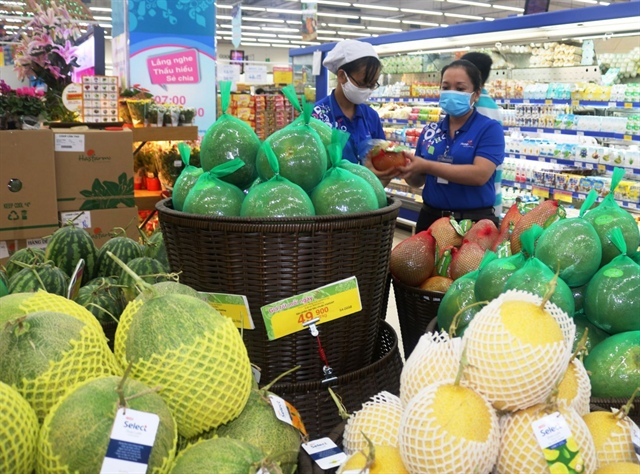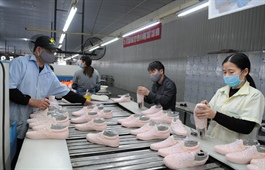Mekong Delta provinces seek domestic markets for their produce
Mekong Delta provinces seek domestic markets for their produce
Developing agricultural production into a market-oriented economy with sustainable markets is vital for the Mekong Delta’s socioeconomic progress.
Export difficulties
The Covid-19 pandemic presented Mekong Delta with massive export difficulties for much of its key produce and seafood. To make up for the loss of exports markets, many growers and businesses have shifted to the domestic market, which has been developing well in recent years.
In early 2022, due to the Covid-19 pandemic, the price of many Mekong Delta agricultural products saw a catastrophic plunge because of a near halt of exports. Large amounts of fresh fruit were sold at cheap prices (VND5,000-8,000 per kilo of jackfruit, dragon fruit and watermelon) along roads from Ben Tre Province to the region’s other two provinces of Tien Giang and Vinh Long. According to dragon fruit growers in Long An, Tien Giang and Ben Tre provinces, dragon fruit prices fell two-thirds to VND1,000-1,500/kg due to China’s halt of this fruit import, and many farmer households suffered heavy losses. In Ben Tre, the price of green-skinned pomelos fell from VND40,000-50,000/kg to VND10,000-12,000/kg due to growing inventories caused by export limitations.
According to the Ministry of Agriculture and Rural Development’s Department of Crop Production, in the first quarter of 2022, the Mekong Delta will harvest an estimated 1.6 million tonnes of dragon fruit, banana, mango, jackfruit, grapefruit, orange, and pineapple, among others, mainly for export to China. According to the ministry, farm produce exports to China faced annual difficulties even prior to China’s zero-Covid strategy. Overcoming this handicap requires improved goods’ quality, stronger supply-demand connections and development of the domestic market, the ministry said.

The Mekong Delta’s fruits are found in leading distribution systems |
The domestic market
The Vina T&T Group, which has been exporting farm produce to such discerning markets as the US, Australia and Canada for almost 10 years, decided to develop its domestic sales. Vina T&T Group General Director Nguyen Dinh Tung said his business has opportunities to develop domestic sales and become competitive with foreign brands given the group’s deep understanding of Vietnamese consumer tastes. Eighty-five percent of Vietnamese consumers still choose shopping through traditional distribution channels, while foreign distributors usually market their products through modern channels, Tung said.
Nguyen Hoang Cung, Director of the Dai Thuan Thien Clean Agricultural Products Company Limited in Can Tho City, said the domestic fruit demand is very large, and business connectivity and cooperation, large-scale production development and application of science and technology and consistent processes are crucial for farmers to create high quality and reasonable-price products. Farmers should cooperate with distributors on the principle of mutual benefit, Cung said.
Problems related to domestic market development include lack of close cooperation between producers and distributors, inadequate infrastructure, retail cost and transaction information, trade without invoices and rampant cash-based payments.
| In the context of the Covid-19 pandemic, which made exports difficult or even impossible, shifting to the domestic market is a good, efficient solution for businesses. |




















